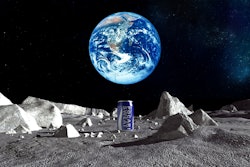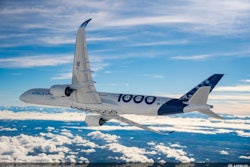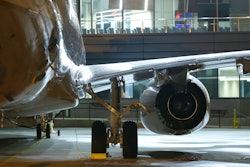BUSINESS-01
Cabinet Posts; New York Retailers Feel Trump Impact; Protest Against
Britain's New Notes; Patagonia to Give Away Black Friday Proceeds - Part 2>
Sebastian, John Defterios, Ravi Agrawal >
Michael Block, Chief Strategist, Rhino Trading Partners; Rich Ridgeway,
Vice President, Patagonia; Elisa Allen, Director, Peta U.K >
Colombia. Donald Trump has named the people he wants to make two of his
top priorities a reality. Tiffany says sales have been hurt by all the
security chaos literally surrounding its flagship New York City store next
to Trump Towers. Price of oil tumbled nearly 4 percent on Tuesday, ahead
of a key OPEC meeting. Iran and Iraq had been at odds with Saudi Arabia.
Patagonia has racked in an impressive $10 million in Black Friday sales,
and is donating every dollar to groups working to protect the planet. More
than 66,000 people have signed a petition calling on the Bank of England to
stop using animal products in its currency>
The latest data on U.S. growth, as I mentioned earlier in the show, came in stronger-than-expected. Michael Block, the chief strategist, Rhino Trading Partners, he joins me now from New York. Michael, thanks very much for joining us here on the show. Let's start with the OPEC meeting. It does seems that the Saudi's are betting on the President-elect, hoping he will grow the economy and that there will be a thirst for oil. Where do you stand on this?
MICHAEL BLOCK, CHIEF STRATEGIST, RHINO TRADING PARTNERS: I'm guessing a lot of Saudi's voted for President Trump and they believe everything he says. Either that or they're watching the U.S. stock market which just keeps going higher. It's had some fits and starts, but it doesn't go down. Since the election, we had the initial shock when it went down when it became clear he was the winner, and then started moving higher and higher and higher and higher and higher. It's as if everything that Trump was promising, more stimulus, more infrastructure building, better jobs, better trade terms, and it happened instantly with the snap of the fingers, and it's all done.
To a point where as the Saudi's as they're trying to negotiate this agreement in Vienna -- the minister the other day, I pointed out in my morning note to clients, he actually said, well, maybe we don't need a deal. And that was a little hardball reverse psychology, or whatever we want to call it. But he actually came out publicly and said, well, if U.S. consumption is going to be great, because of everything that's going on there and because of the election. It's mind blowing to me.
I'm not a big believer in either, A, this big stock market rally we had. I hope and it would be great if everything Mr. Trump is promising comes true. And second, this OPEC deal I'm also a little skeptical on. I'd say the oil market, as you pointed out up top, oil is trading off today. Perhaps this uncertainty is priced in. Will it get a deal or not? Right now, I'm in a camp that says, yes, they're going agree to something. They need to come out with their trophy and say, hey, we made a deal.
It may involve them kowtowing a bit to Iran and Iraq and pretending they didn't by giving them a little more leeway on production. Or it may be everyone nodding and agreeing that they're going to say yes right now, and then their actions will say no, unfortunately. We've seen this time and time again. Is everyone really going to stick to targets when the Saudi government is under fire as they need to diversify their revenue streams. You have a new King there and a new ambitious Deputy Crown Prince, Mohammed bin Salman, there. He wants to prove a point here. He's going to do whatever it takes to solidify his power.
In Iran, there are elections next year. Certainly, a hard line there wants to make a statement that they can't get pushed around by anybody, certainly not the Saudi's or the U.S.
SOARES: I'm not sure if an agreement will come out of all of this. Because, as you know Michael, there's been such disagreement between all of them. You mentioned you're not a great believer in this rally, why not?
BLOCK: We always said that the stock market is a six-month discounting mechanism. You know, it's a voting machine, not a weighing machine, as Benjamin Graham said. It used to be six months, where you say, Ok, if a company's going to have good earnings in the next couple of quarters we buy the stock, we don't buy it on the past earnings.
It's almost as if people are buying bank stocks and industrial stocks now, Isa. Thinking that Trump's going to get roll into office in January and he has this Republican dominated Congress, and they're all going to vote lock step, and they're going to deregulate Wall Street and deregulate the energy industry. And they're going to make a new deal like the greatest thing since FDR and Ronald Reagan put together and they're going to build new roads, and build interstates, and bridges and tunnels, and it's all going to flow in the U.S. And China and Japan are going to roll over and let us sell them all the steel that our companies want to. And they're not going to fight that. That's a bit much for me. To say the least. Look, I want to be optimistic. I want to say, Ok, let's see what you can do Mr. President-elect. Let's see what you can do Congress. Let's do it. God bless America, I need a little more before I start diving in.
SOARES: We'll get you back and see whether or not you were right. Thanks very much, Michael. Good to see you.
BLOCK: Thank, Isa.
SOARES: On the eve of their meeting in Vienna, oil ministers from the OPEC nations do not seem to be any closer, as you heard me they're talking to Michael, to an agreement on whether or not to freeze oil production. Our emerging markets editor John Defterios, is at the meeting and he joins me now. John, this is a pivotal meeting. And the expectation is that the cartel could reach an agreement to cut back oil production. But so far, I think it's fair to say, it's not going well. Why not?
JOHN DEFTERIOS, CNN EMERGING MARKETS EDITOR: Well, it has been fairly nasty, Isa. Let's call it the last minute of horse trading, down to the wire. This is moving now to hotel diplomacy, if you will. With five ministers at the Park Hyatt and five ministers at the Karpinski. And they'll reconvening tomorrow at 8:00 a.m. They had 10 hours here at the OPEC headquarters and they could not break the impasse right now.
Let's look at the three major players at this hour. It's Iran, Iraq and Saudi Arabia. The Iranian minister there on the left, Bijan Zanganeh, has wanted to climb production up to 4 million barrels a day. The last-minute proposal as we speak by Saudi Arabia is that they come down and park it at 3.8. Iraq is at 4.6 million barrels a day. An important number, they haven't really clarified whether they're going to come down. And Saudi Arabia is now calling for burden sharing. Not all 14 members, because we have some exceptions like Libya and Nigeria, but they want Iraq and Iran as part of the solution. And Saudi Arabia is meeting a lot of resistance, let's take a listen.
(BEGIN VIDEO CLIP)
MICHAEL ROTHMAN, CORNERSTONE ANALYTICS: There's almost everybody is on board except for two countries at this point, Iraq and Iran. And Iran seems to be the stumbling block. There in kind of a contest with Saudi Arabia and they seem to be gaming them, so to speak, to try to avoid being part of this deal in any way shape or form.
(END VIDEO CLIP)
DEFTERIOS: So, listen to the language that is taking place there. The reality is though that something has changed since the end of 2014. Both Iran and Iraq combined about a 2 million barrels a day of production. This means that their overall production is nearly 8 1/2 million. Just slightly shy of Saudi Arabia. So, it's no longer just Saudi Arabia's game here at OPEC. They're meeting the resistance from Iran and Iraq, and that is a last major hurdle to getting the deal done tomorrow.
SOARES: But John, this sounds a bit like a pretty dysfunctional family. Is there someone there who can come in, restore order. What are the options at this stage?
DEFTERIOS: It is funny you say that. Because Russia was going to participate in the cuts at this stage, and it got so nasty they decided to stay in Moscow this time around. So, there are three options that are on the table. OPEC doesn't do anything with the cuts and they pay a very severe price. We'll get more to that in just a second. They tread water by putting a kind of lukewarm offer on the table and say we can complete the cuts in 2017, or they go with Saudi Arabian strategy that was presented as we take a look here from Algeria.
The Algeria plan that they came up with at the end of September. Cuts of 1.2, perhaps, 1.2 million barrels a day, with the non-OPEC players offering 600,000. This is what Iran and Iraq are pushing against, and let's not forget the geopolitical nature of it all. We have an approximate war taking place in Yemen, between Saudi Arabia on one side and Iran on the other. Same thing plays out in Syria right now, and also there is a Trump factor. Donald Trump has kind of promised to voters that he'll tear up the Iranian agreement. Of course, Saudi Arabia and Kuwait, back that proposal.
[16:40:00] So, Iran's playing some hardball right now. And I spoke to one major trading house that's here at OPEC, they said the price paid will be going below $40 a barrel if they don't come up with than agreement. So, the heat is on, they know the heat is on, but the old rivalries between Saudi Arabia and Iran right now seem to be prevailing at the very late hour here in Vienna.
SOARES: Yes, so you have a whole host of other countries, don't you John, who want exemptions, who want to grow production, like the Nigerians, like the Angolans. Let me ask you this, what do you make of the idea that there is no deal that perhaps the Saudi's could potentially flood the market with supply as retaliation?
DEFTERIOS: Well, Saudi Arabia was kind of knocking on near peak right now, Isa. They don't have a lot of upside potential. But the mere fact they don't do anything, OPEC is at record production. We're actually near 36 million barrels a day. So, they're already flooding the market. So, the market is oversupplied by 700,000 barrels a day and we're in the winter. So, Goldman Sachs was suggesting, if they don't come up with an agreement, you have the oversupply of 700,000 barrels a day. That will grow to about 1.5 to 2 million barrels a day, if nothing is done by the spring. So, the OPEC players know they have to put something on the table, rebuild credibility. Get the Russians, the Azeri's and the Cossacks from the non- OPEC camp back at the table here to try to get something solid in the first quarter of 2017, and also, something that is transparent and realistic. It has been lacking in the last three attempts in 2016.
SOARES: A very heated meeting. A very chilly, it seems, Vienna. John Defterios, very good to see you. Thank you very much.
In the U.S., we've got more breaking news for you. Patagonia was expected to bring in $2 million on black Friday, a company executive was surprised when they made five times that figure. And get this, even more surprising, Patagonia says it's going to give it all away. We will speak to Patagonia, next.
(COMMERCIAL BREAK)
SOARES: Welcome back to QUEST MEANS BUSINESS. Now in the U.S. Black Friday is pretty much the height of feverish consumerism, the delight of retailers, of course. Patagonia, the outdoor clothing company says is racked in an impressive $10 million in Black Friday sales, this year alone, but none of it will go to their bottom line. It says it's donating every dollar to groups working to protect the planet. Rich Ridgway, Patagonia's vice president on environmental affairs, he joins me from Los Angeles. Mr. Ridgeway, thank you very much for joining us on the show. Explain to our viewer why your company has decided to donate 100 percent of your sales to environmental groups?
RICH RIDGEWAY, VICE PRESIDENT, PATAGONIA: Since 1985 we have donated 1 percent of our sales right off the top, not profits, but sales, back to environmental groups around the world. Last year that was nearly 800 environmental groups that are usually local groups working to protect their backyard beaches and forests and rivers and wetlands. And then this year we decided on Black Friday that we would double down even more.
[16:45:00] Instead of 1 percent, we would give 100 percent of everything we made globally in our online sales and through our own stores back to the environment, back to supporting the nonprofits around the world.
SOARES: Talk a little more about the NGO's, what kind of projects what will the money go towards? Give some examples.
RIDGEWAY: In the main these are small, local groups. They are working to protect their nature in their backyard. They're working to protect their community, clean water, clean air and working to create healthy soils for their communities. In short, they are doing their part locally to create globally a healthy planet. They believe in what we believe at Patagonia, we have firmly believed in the 45 years that we have been in business, that without a healthy planet, there is no way any of us are going to have healthy societies, jobs, none of it will work if we continue to overuse and abuse the planet like we have. These are groups working to reverse that.
SOARES: It seems like you might be at odds with your President-elect that called climate change a hoax. Do you feel that you need to do this? Are your customers worried about this?
RIDGEWAY: We believe our customers are sending a loud and clear message to the administration, to the entire society that there are a major number of people in the society who are unwilling to sell out the health of our planet to the highest bidder. Those are our people, we will support them and they supported us. They supported us by showing up in our stores around the country on black Friday, and giving us essentially five times what we projected they would do to support us.
And in turn, we're giving back all of that money, 100 percent of it. We had projected that we would have sales that might get north of $2 million. It came in north of $10 million.
SOARES: I suppose at a time of such great division in the country. Do you feel that businesses like yours need to take a bigger role and donate or speak up on politics and policies?
RIDGEWAY: We certainly hope they do. We strive to encourage other businesses to follow our lead and I think increasingly they are. They are understanding the commitments to sustainability, to supporting environmental protection. Most of that value is coming from the fact that their customers are supporting them as well. We think we're on the front end of a long-term trend here. And we hope that more businesses step up and do their part.
SOARES: Thank you, great to see you.
A fat wallet, that's a good thing, but fat in your wallet, not so much. Vegans are enraged about what is in Britain's new five-pound note. We will reveal.
[16:50:00] (COMMERCIAL BREAK)
SOARES: Blood money, pound of flesh, both phrases are being used to describe the new British five-pound note. The bank of England has admitted the bills contain traces of tallow that is made from animal fat. It has been used or years to make things like soap as well as candles. Well, that revelation prompted a furious reaction from vegetarians and vegans.
More than 66,000 people have signed a petition calling on the Bank of England to stop using animal products in its currency and that petition is just today. The company that makes the material says they're working on the problem. PETA U.K., they oppose the use tallow on environmental and cruelty grounds Elisa Allen is the group's director and she joins me now. Explain to our international viewers about what tallow is? And why you are calling for the contents of the note to be changed?
ELISA ALLEN, DIRECTOR, PETA U.K.: Tallow is the fat of a dead animal, it is a byproduct of the meat industry and the fact that our currency now contains tallow is absurd. It is 2016 and we don't need to put animal parts in our bodies and we certainly do not need to be putting animal parts into our currency. Today most everyone with exception of the meat industry knows that we need to be moving away from animal agriculture not towards it.
Even the United Nations has said we need a shift towards a vegan diet to combat the worst effects of climate change. No one needs to be propping up this industry, definitely not the Bank of England.
SOARES: Did you know prior to this that it contained tallow?
ALLEN: No, this was a shock to us all. For god knows how long the currency has been made using paper. Recently plastic was introduced, but of course nobody would expect that animal derivatives are found in what looks like a plastic bank note.
SOARES: But Elisa according to the company behind the five-pound notes, they only contain minute traces of tallow and they say they use it to make the material more anti-static. In fact, I was reading it is being used more and more by central banks around the world because the material resists dirt and lasts longer than paper cash.
ALLEN: Where there is a will there is a way. Today in 2016 there is a cruelty free, animal free, humane alternative to everything and that includes bank notes. What is unfair is the new currency that contains animal parts means that millions of vegetarians and vegans in the U.K. are forced to use a product that stands opposed to our principles. The other point is that we can't avoid the note for the time being, but it is important to note that we can -- we're interested in helping animals and we can vote with our wallets and that includes not giving cash to industries that harm animals.
SOARES: Let's see what the Bank of England does now with that petition, thanks very much.
In India, when the government decreed that 80 percent of India's bank notes needed to be withdrawn from circulation a few weeks ago, it left the country in a cash strapped chaos. And many people could not pay for medicine or food. There is one group that has found a way to sidestep the crisis. As our Ravi Agrawal reports.
(BEGIN VIDEOTAPE)
RAVI AGRAWAL, CNN INTERNATIONAL CORRESPONDENT: These are the new norm in India. Long snaking ques at every bank and ATM. India has a cash crunch. Hello, change for 2000 rupees?
It's the same story everywhere. It's hard to break a 2,000-rupee bill, about $30. And it's been like this for 3 weeks when the government pulled all 500 and 1,000 rupee notes from the economy. And replace them with new 500 and 2,000 rupee notes.
And the government says they're trying to eliminate illegal untaxed money. But banks can hardly keep up. There is one clear winner, though. I am at a New Delhi street market and there are a lot of roadside stalls and vendors here that sell all kinds of street food. Obviously, these are places that are struggling because they're all of their transactions are all in cash, and this store behind me has started using something called Paytm.
[16:55:00] Paytm is the top Indian digital wallet company and it seems to be everywhere. Founder and CEO Vijay Shekhar Sharma says this is boom time for digital money in India.
VIJAY SHEKHAR SHARMA, FOUNDER AND CEO, PAYTM: When we started, we were about 150 million users. And now we are 160 million users in less than three weeks, so 10 million customers signed in less than three weeks.
AGRAWAL: That is a 7 percent jump in 21 days and the growth is not limited to the big cities. Four out of seven Paytm users are in rule India. Perhaps that is why the startup is valued at more than very 5 billion.
SHARMA: We have, fortunately, to create India into first world of payments.
AGRAWAL: Sharma says teaching Indians how to get online remains a hurdle. Which is why he employs a small army of 10,000 to sign people up. Back at street food stores, I learned that my local vendor started using Paytm just three weeks ago. The day after India's move to ban old notes. Already he is making one fifth of his revenue from digital money. One small step for local businesses, but perhaps a bigger leap for India's digital future.
(END VIDEOTAPE)
SOARES: Time now for a quick check on how European markets closed on Tuesday. It was a mixed session for the most part. FTSE down, Xetra Dax up, the CAC actually the best performer. U.K. stocks you can see dropped as oil shares fell on concerns of the OPEC meeting. But on the whole, European stocks were helped by a rebound in Italian banking stocks.
That follows media reports that the ECB is ready to buy more Italian bonds if the referendum leads to market volatility. If you want a daily digest of the top business stories delivered to your inbox, subscribe to the QUEST MEANS BUSINESS newsletter featuring Richards Profitable Moment and all of the top headlines from the rest of the CNN money team. Just go to CNNmoney.com/quest to subscribe. That is QUEST MEANS BUSINESS for today, we'll see you tomorrow.
END
(Copy: Content and programming copyright 2016 Cable News Network, Inc. ALL RIGHTS RESERVED. Copyright 2016 CQ-Roll Call, Inc. All materials herein are protected by United States copyright law and may not be reproduced, distributed, transmitted, displayed, published or broadcast without the prior written permission of CQ-Roll Call. You may not alter or remove any trademark, copyright or other notice from copies of the content.)






















